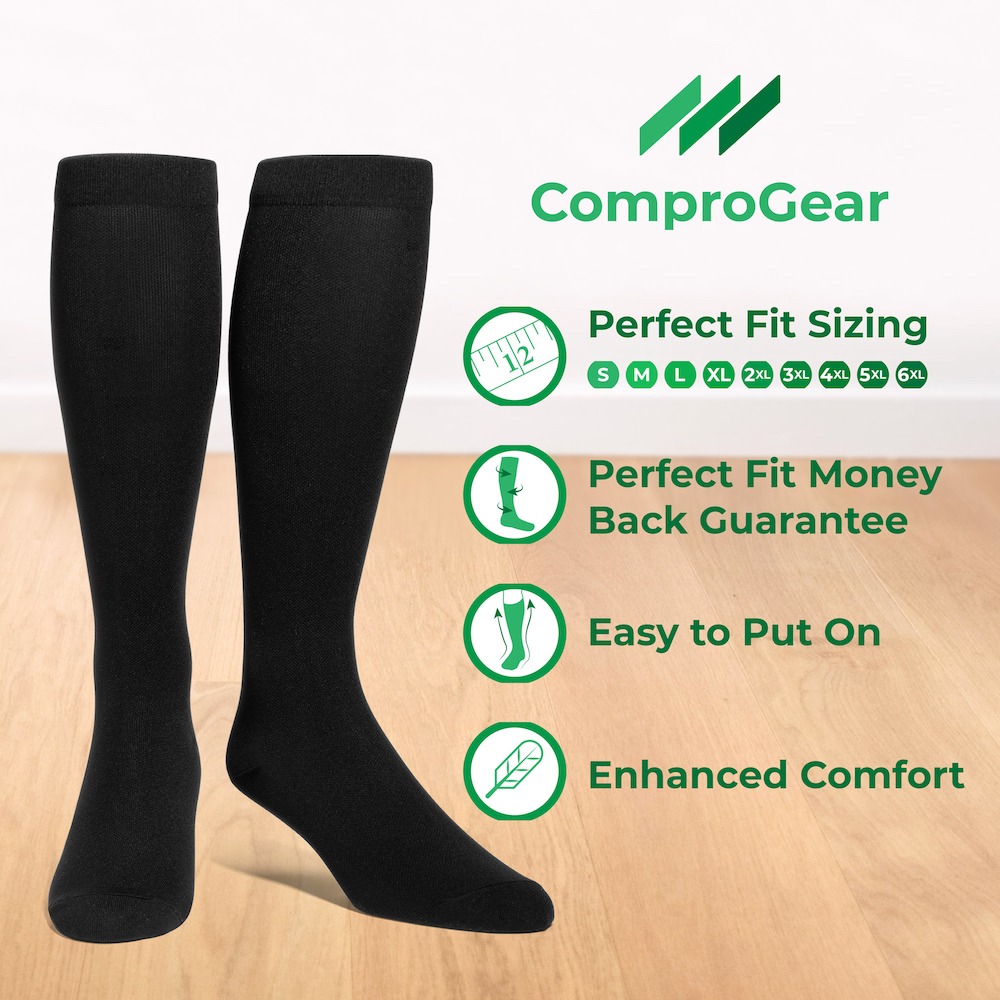The Miracle that is Compression Socks with Zips
Do you own compression socks but find the process of donning and doffing a nightmare? You are not alone. The struggle to pull these socks on and off is one of the main reasons why many people shy away from using this phenomenal product. By combining compression technology with a good old zip, a perfect solution has been created to ease the on and off process. The resulting invention is zippered socks.
Adding zippers to compression socks is an exceptional way of improving the process of donning and doffing. Compression socks are a tightly-fitting gear that requires a lot of your energy to pull onto your leg and adjust for a proper fit. The process can be cumbersome and uncomfortable for anyone using the socks to improve forms of venous insufficiency on the legs.
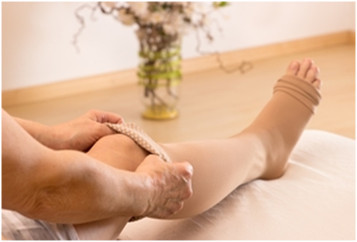
Zippers are usually fitted onto the side of the compression socks. They occupy a small space along the width of the sock and run about two-thirds up the length of the hosiery. The zipper does not interfere with the sock’s ability to uniformly add pressure to your leg veins.
Why Zip-up Compression Socks Matter
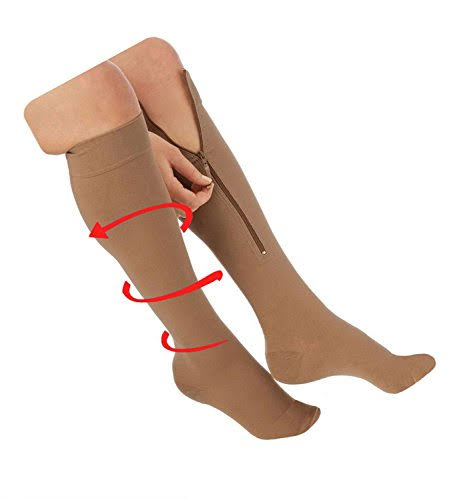
If you are having difficulty putting on and removing your compression socks, the zippered design is made just for you. You are not alone in this struggle. Pain and discomfort in the don and doff process are among the reasons why compliance with compression socks is often ignored. The process is not only painful and cumbersome, but can also exacerbate your leg condition due to friction, as well as the pain of pushing and pulling.
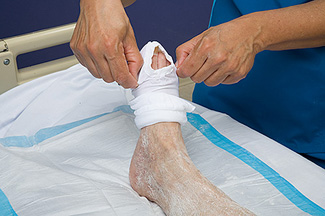
Even medics agree that zippered socks are important for patients with leg wounds because of the discomfort of wearing and removing traditional compression socks, and the possibility of worsening venous insufficiency. Zipper socks simplify the application process, reducing incidences of pain and continued mechanical injury.
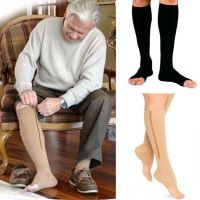
With zippered socks, the process is modified to a simple slip and zip. The complications of straining, moving the compression gear delicately along the leg, and the tiredness from bending for a long time, especially in the case of pregnant and elderly wearers, is solved with the inclusion of a zipper on the sock.
What Zip-up Socks Solve
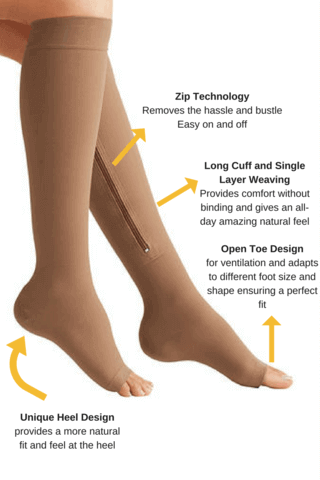
Zippered socks, like other compression gear, help relieve pain, soreness, inflammation and edema caused by venous insufficiency in your leg. The zippers are fitted in your socks without messing with the integrity of the gear. Aside from improving the application process, this zipper containing hosiery improves circulation in your legs.
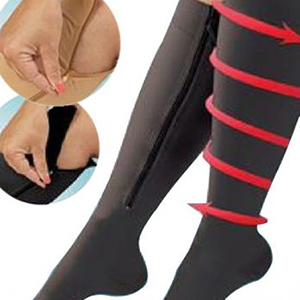
The main purpose of compression socks is to improve blood circulation in your leg veins. There are certain conditions that interfere with blood flow from your leg veins to your heart; these conditions mainly affect the rate of blood flow in your veins, because blood flows much slower in your veins compared to your arteries.
The conditions range from external factors to bodily functions. External factors that affect venous circulation in your legs include gravity and sedentary living (vocations that require sitting for long periods of time). The possibility of blood stagnancy, and the probability of venous insufficiency, increases with these external factors.
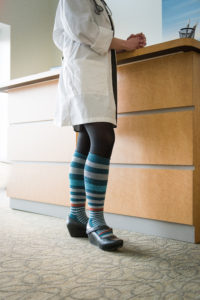
Similarly, professions such as nursing, where one is required to routinely stand and walk, also trigger venous insufficiency. Internal conditions that cause poor blood circulation include pregnancy, cardiovascular illnesses, the structure of veins, leg muscle weakness and the anatomy and physiology of blood circulation.
Zip-up Hosiery and Blood Circulation
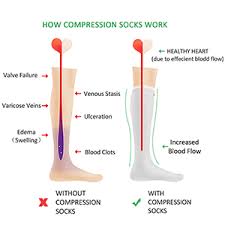
Poor circulation in your legs increases the likelihood of clot formation: embolism, spider clots and deep vein thrombosis (DVT) because blood remains stagnant in your legs for too long. This triggers coagulation. Zipper socks prevent clot formation by improving blood circulation.
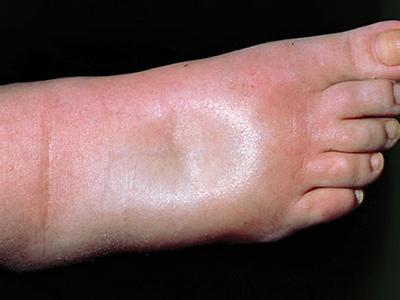
Edema, on the other hand, occurs when fluid leaks from your veins to the surrounding tissues because of blood accumulation and stagnation. By ensuring your blood is constantly flowing, zippered socks prevent blood accumulation in your veins, which eliminates edema.
The socks are also vital for wound healing. Ample blood supply facilitates wound healing by bringing in nutrients, bio-molecules and oxygen whilst removing metabolic waste.
It is through improved blood circulation that athletes heal from delayed onset muscle syndrome (DOMS). Blood flow improves the health of your strained muscles, reversing the problems created from intense exercising.
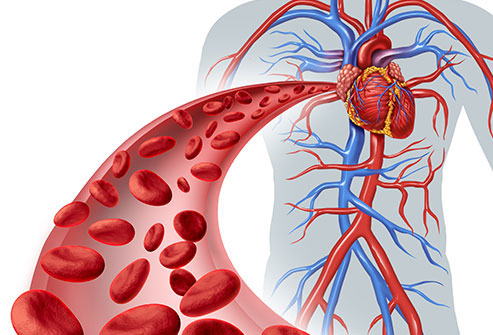
How Zip-up Hosiery Works
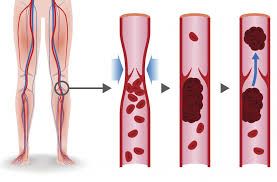
Zipper socks work by pressurizing your leg veins. The external pressure pushes blood up to your lungs. The pressure keeps blood flowing in your legs, eliminating stagnation and accumulation of blood. Thus, blood circulation is improved.
There are certain features in these zippered socks that make them perform their function meticulously.
Compression Levels
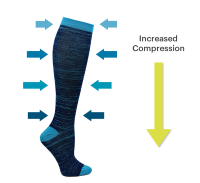
Compression levels represent the degree of pressure that will be applied to your veins by your socks. Each pair of zipper socks has a level of compression expressed as a ratio and measured in mmHg. The ratio ranges from 5mmHg to 60mmHg. The Unit mmHg, read as millimeters of mercury, is a measure of pressure, because that is what the socks produce.
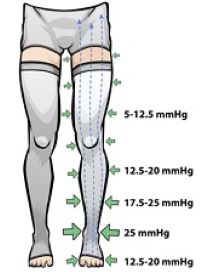
There are three standard compression ratios used in this type of compression sock. Each ratio resolves specific venous insufficiency conditions in relation to the severity of the condition.
A ratio is expressed as a range containing the lowest and highest compression level. In a sock, the range provides the demarcation of the highest and lowest pressure contained in a pair of socks.
Thus, a 20-30mmHg zippered sock gives a minimum pressure of 20mmHg and a maximum pressure of 30mmHg. The highest pressure is located on the foot region, while the lowest pressure is on the upper region of the sock.
The Three Standard Ratios of Compression Socks
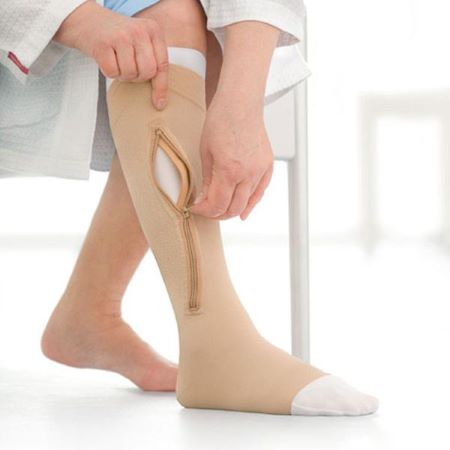
- 15-20mmHg zippers provide the least pressure to your leg veins. They are suitable for treating mild conditions such as those experienced by travelers. Socks with this level of compression are also used to prevent clot formation and edema.
- 20-30mmHg zippers are the first medical grade compression socks. They are prescribed during pregnancy, and to treat edema and spider veins.
- 30-40mmHg Zippers are second medical grade socks. They are prescribed for cases of acute venous insufficiency. The socks are ideal for leg wound healing, venous ulceration, deep vein thrombosis and treating recurrent clots.
Graduated Compression
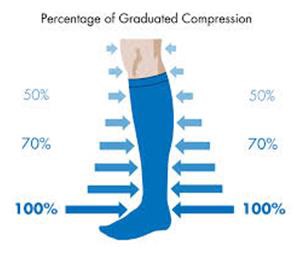
Zippered socks have varying pressure levels along the length of the socks. The pressure levels decrease gradually towards the top of the socks, making the pressure greater on the feet region of the socks and lesser at the top of the socks. The pressure difference along the length of the socks creates a suction force in your veins, causing blood to flow continuously to your heart.
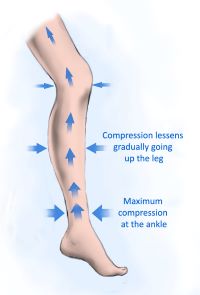
Without varying pressure levels, the socks would be ineffective in improving blood circulation in your legs. In zippered socks, the zip location does not interfere with the pressure mechanism around the leg. The zipper’s space is negligible compared to the space left for the sock to work on your veins.
Zippered socks provide double relief for venous insufficiency problems. You get an easy application process, and maximum pressure applied to your legs at the same time. Nevertheless, all compression hosiery is vital to providing the needed relief for your legs.
Compression Stockings and Their Importance
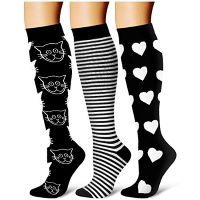
There are many forms of compression socks. The designs vary to cater to different leg conditions, and also to appeal to a wider demography. All types of compression stockings function the same. They use the same principle of varying pressure, regardless of their design.
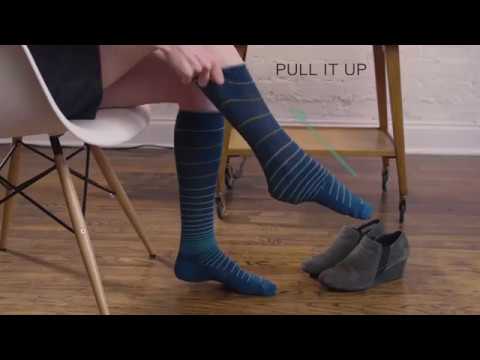
However, the socks perform different functions, and their manner of use varies greatly. Some modifications to socks’ appearances have been created to improve the application process, while other alterations have to do with the functionality of the socks.
Types of Compression Socks
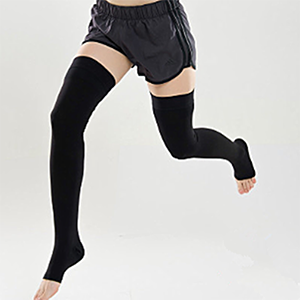
Compression socks can be toeless. The goal of the open toe tip is to make the donning process easy. The extra wiggle room is a go-to if you have wide toes, bunions, ingrown nails or hammered toes. Toeless socks are also good for the wearer who does not want to feel cramped from wearing socks the entire day.
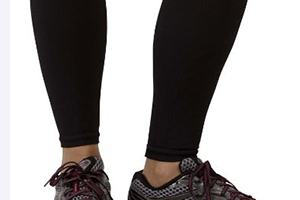
Compression hosiery also exists in the form of leg sleeves. The sleeves only cover the ankle and calf region and provide compression on the lower leg region. Leg sleeves or tubes are ideal for strenuous exercising. The sleeves improve circulation on the leg tissues to prevent muscle injury during intense activity.
Compression sleeves should not be used during rest, because they do not provide compression on the foot region. The lack of compression will cause blood to accumulate in your feet and reek havoc on your lower leg. In times of rest, socks are the best for compression therapy.
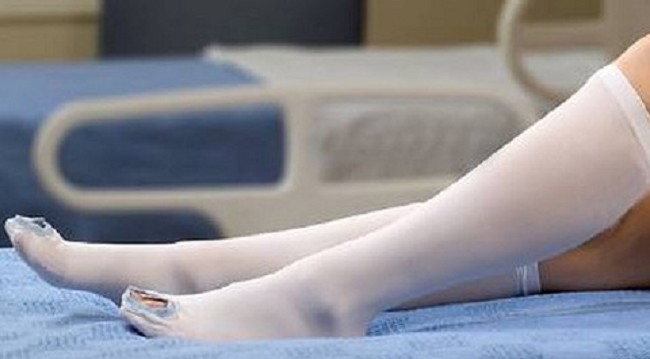
There are also anti-embolism socks, otherwise known as thromboembolism- deterrent hose, used by surgery patients during their recovery periods. The socks are light and have low-level compression, because they are only meant to prevent clots (embolism) as the patient recovers.
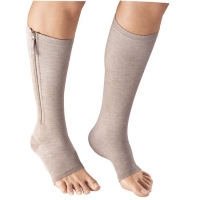
Regardless of appearance, every kind of compression hosiery improves blood circulation. Compression socks with zippers are equally important, especially for an easy don and doff process. Sometimes, the socks have a toeless tip to further ease the application and removal process as well.
Does Length Matter for Compression Gear with Zips?
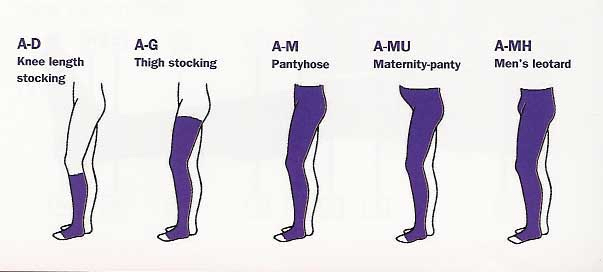
Zippered compression socks have varying lengths. The length you choose should depend on your condition.
- Ankle length compression socks improve blood circulation in your feet; this length of sock covers your ankles and feet.
- Knee-length socks cover the calves, ankles and feet. They are the best alternative for easy donning and doffing, because they cover a considerable length of the lower leg.
- Thigh-length hosiery covers the thighs in addition to the calves, ankles and feet.
- Compression hose covers the pelvic region, thighs, calves, ankles and feet.
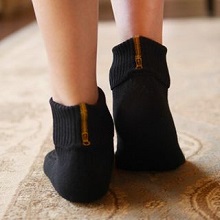
A zipper can be included in any length of sock. Knee-high and thigh-high socks are the most popular ones with zippers.
The length of the hosiery does not determine its degree of efficiency. Knee-length compression socks are as effective as the hose. While the hose covers all of your leg region, it is also difficult to don and doff. Additionally, regular hosiery does not come with a zipper. If the process of application is your main concern, then knee-length compression socks would be ideal for you.
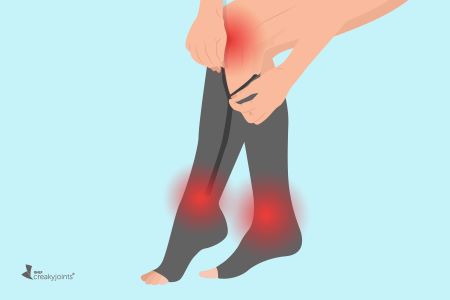
Compression Socks Aesthetics
Compression socks come in many colors as well. The socks can be plain white, brightly colored or in navy shades if you are not a fan of colored stockings. If you will be wearing this gear for a long period of time, choosing the color that appeals to your fashion sense or color choice is not a bad idea.
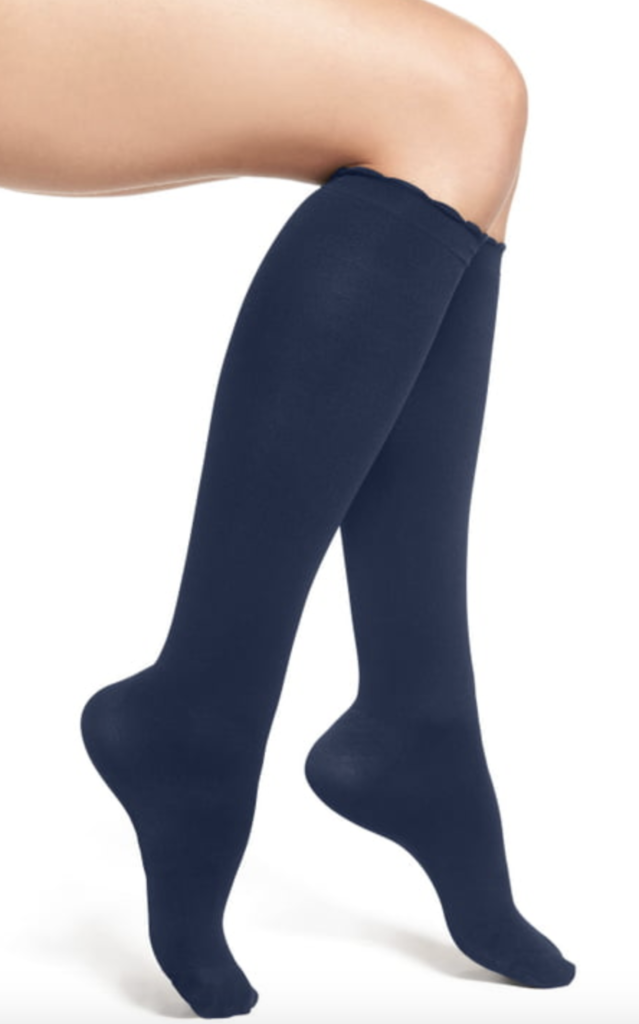
ComproGear’s knee-length mountain blue 20-30mmHg socks are perfect for dark color lovers. The socks are made from quality material with perfect finishings.
You can also opt for a darker color by purchasing ComproGear’s onyx black calf-length compression socks, which will enable you to wear the gear boldly. Aside from the beautiful color, Comprogear produces durable socks that are effective for improving venous insufficiency. The socks are available in the 20-30mmHg compression ratio and are knee-high in length.
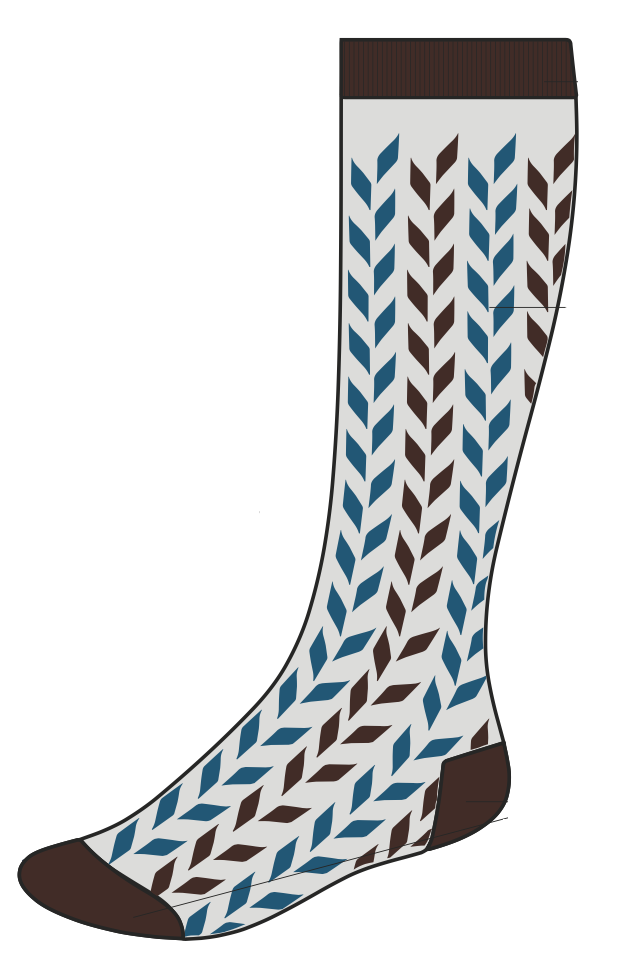
Compression socks also come in patterns with multiple colors that are great for a fun look. Patterns break the monotony of wearing one-colored socks. You can enjoy ComproGear’s bold blue chevrons. The V-shaped patterns strikingly interchange between blue and brown rows on a light blue background. The knee-high socks also have brown tips, creating the perfect contrast between the colors.
Comprogear also has grey socks with white stripes and yellow highlights which provide the needed pop of color without overwhelming the wearer.
Get Yourself A Zippered Sock
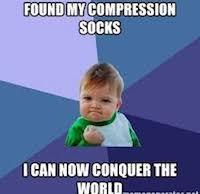
Zippered socks are a necessity if you are struggling with the application process of your compression therapy. It is a better solution than non-compliance or tolerating pain. The zippers make healing possible without strain, pain or the possibility of mechanical injury from friction, interference or intrusion into your leg condition. Now you can finally say goodbye to your days of misery.
With quality zippered socks, you do not have to worry about blood clots and edema. Zippered socks are an awesome, healthy companion. These socks will ensure you travel through your difficult days feeling as comfortable as possible while your legs are provided with gentle but firm support while they heal. Buy one today for maximum comfort and ease of wearability.
This page last updated August 5, 2022
